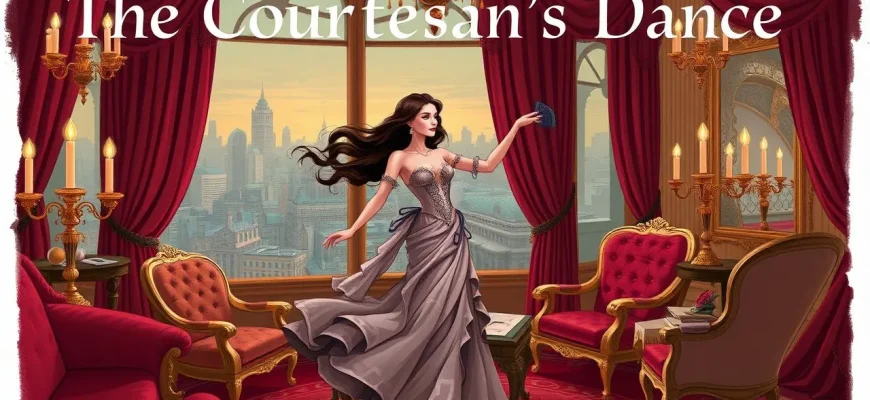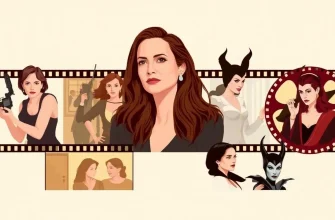The world of courtesans has always been shrouded in mystery, allure, and often, tragedy. These films delve into the lives of women who navigated the complex social structures of their times, offering a glimpse into their struggles, triumphs, and the intricate dance of power and seduction. Whether set in historical periods or modern settings, these stories captivate with their depth, beauty, and the universal themes of love, ambition, and survival.

Pretty Woman (1990)
Description: Although not a traditional courtesan, Vivian Ward's story as a prostitute who becomes the object of affection for a wealthy businessman captures the essence of a modern-day courtesan's life, blending romance with social commentary.
Fact: The film was originally intended to be a dark drama, but was rewritten as a romantic comedy, changing the entire tone of the story.
 Watch Now
Watch Now 
The House of the Spirits (1993)
Description: While not exclusively about courtesans, the film features a character, Tránsito Soto, who rises from poverty to become a powerful madam, influencing the lives of the main characters.
Fact: The film is based on Isabel Allende's novel, which was inspired by her own family history.
 Watch Now
Watch Now 
Memoirs of a Geisha (2005)
Description: This epic tale follows Chiyo, a young girl sold into a geisha house in pre-World War II Japan. Her journey to becoming the legendary geisha Sayuri is filled with beauty, heartbreak, and the art of seduction.
Fact: The film was shot in English, but the actresses underwent extensive training in traditional Japanese arts to authentically portray geishas.
 Watch Now
Watch Now 
The Last Mistress (2007)
Description: This French film set in the 19th century explores the passionate and tumultuous relationship between a young aristocrat and his older, experienced mistress, who embodies the spirit of a courtesan.
Fact: The film was adapted from the novel by Jules Barbey d'Aurevilly, known for its scandalous content at the time of its publication.
 Watch Now
Watch Now 
The Painted Veil (2006)
Description: Set in 1920s China, this film explores the complex relationship between a British doctor and his unfaithful wife, who becomes a courtesan-like figure in a remote village, finding redemption through her experiences.
Fact: The film is based on W. Somerset Maugham's novel of the same name, which was inspired by his own experiences in China.
 Watch Now
Watch Now 
The Countess (2009)
Description: Although focusing on the infamous Countess Elizabeth Báthory, the film explores themes of power, beauty, and the manipulation of men, akin to the life of a courtesan.
Fact: The film was written, directed, and starred in by Julie Delpy, who also composed the music for the movie.
 Watch Now
Watch Now 
The Scarlet Empress (1934)
Description: This historical drama loosely based on the life of Catherine the Great of Russia, shows her transformation from an innocent German princess to a powerful empress, with elements of her life mirroring that of a courtesan.
Fact: The film was directed by Josef von Sternberg, known for his visually stunning and often controversial films.
 30 Days Free
30 Days Free 
Dangerous Beauty (1998)
Description: Set in 16th-century Venice, this film tells the story of Veronica Franco, a courtesan who becomes one of the city's most sought-after women. Her intelligence and wit make her a favorite among the elite, but her life is fraught with danger and scandal.
Fact: The film was inspired by the real-life courtesan Veronica Franco, whose poetry and letters provide a rare insight into the life of a courtesan during the Renaissance.
 30 Days Free
30 Days Free 
The Girl with the Red Scarf (1978)
Description: A Turkish film that follows a young woman's journey from a small village to Istanbul, where she becomes a courtesan, navigating the complexities of love and societal expectations.
Fact: The film is based on a novel by Orhan Kemal, one of Turkey's most celebrated authors.
 30 Days Free
30 Days Free 
The Lady of the Camellias (1981)
Description: This adaptation of Alexandre Dumas fils' novel portrays the life of Marguerite Gautier, a Parisian courtesan known for her beauty and tragic love story.
Fact: The story has been adapted into numerous films, operas, and plays, showcasing its enduring appeal.
 30 Days Free
30 Days Free 








